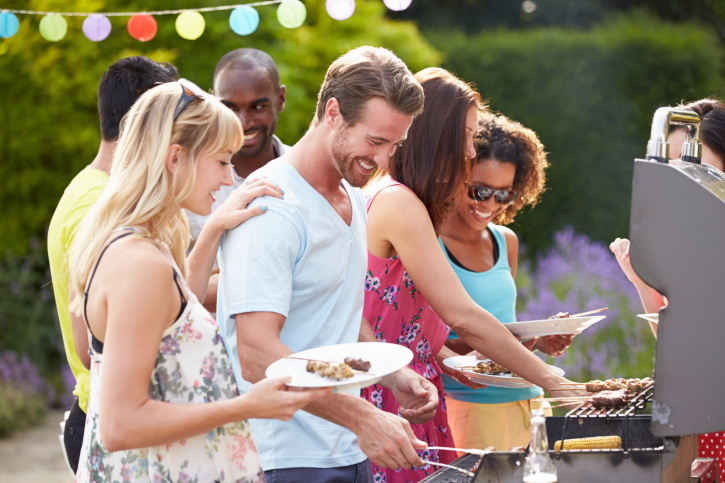Summer BBQ season is here! But if you suffer from Celiac Disease or gluten intolerance, barbecues and other social events with food might make you feel anxious and fearful about getting glutened. Make social events easier to handle by following these tips:
- Eat before you go. This way, you’re already pretty full, and the sights and smells of glutenous food won’t seem nearly as tempting.
- Bring your own snacks. Keep some gluten-free energy bars, gluten-free pretzel sticks, or other treats stashed in your handbag.
- Bring a snack to share. Bring something gluten-free to share at the party, such as a fruit or veggie tray or a homemade gluten-free baked good. This way you know there’s something there you can eat.
- Read ingredient labels carefully. It may be a good idea to only choose foods whose ingredients you can read on a label. That way, you can see for yourself whether something is gluten-free or a potential risk.
- Know where gluten hides. Those yummy marinades for chicken, steak, and other meats? They often contain gluten. Dips and barbecue sauces may also be hidden sources of gluten. Hot dogs can contain gluten, too. If you can’t read the label on the bottle or package to determine whether something is gluten-free, you may be better off just not eating it.
- Know how cross-contamination could happen. Even if that delicious turkey dog is gluten-free, is it being cooked on the same grill that marinated chicken was just being grilled on? That may not be safe for you to eat. Did the kid whose hands are covered in cookie crumbs just grab a bunch of carrot sticks from the veggie tray? That could be problematic for you.
- Arrive—and pick your food—early. You may reduce your risk of cross-contamination if you are the first one to reach for a gluten-free goodie. Get there early to better your chances of being the first one to snag snacks.
If you feel comfortable, let the party hosts know in advance about your food intolerances/sensitivities. Tell them that you do not need or want them to go to any trouble on your behalf, but that you are going to handle it on your own by bringing your own snacks or something to share, avoiding any food that may be potentially risky for you, and arriving early or exactly on time to get first crack at any gluten-free food that’s available.
Another thing to consider is that well-meaning family and friends may try to convince you that “you can eat that; I’m sure it doesn’t have gluten in it!” Remember that although these folks tend to have your best interests at heart, they likely do not have the wealth of knowledge that you have when it comes to gluten. They may be mistaken about what foods are gluten-free and safe for you to eat. Do not be tempted to eat these foods just to please other people. You are not being impolite by avoiding these foods—you are being smart by putting your health and well-being first. Although pressure from family and friends may feel frustrating, just smile and explain that yes, you might be able to eat that, but you’d rather be safe than sorry. Be polite, but firm—and then nosh on one of your packed snacks or other food that you know is safe for you to have.
And, as always, no matter how yummy something looks, if you have any doubt whether the treat is safe for you to eat, you’re probably better off not eating it. Although it’s often tough to resist a delicious-looking food, remember that it’s much easier to walk away from that treat than it is to deal with feeling ill for hours or even days because you’ve been glutened.
If you suspect you may have Celiac Disease or gluten intolerance, talk to your primary care physician. Your doctor may suggest getting tested for Celiac or going on a gluten-free diet to see if your symptoms disappear.



